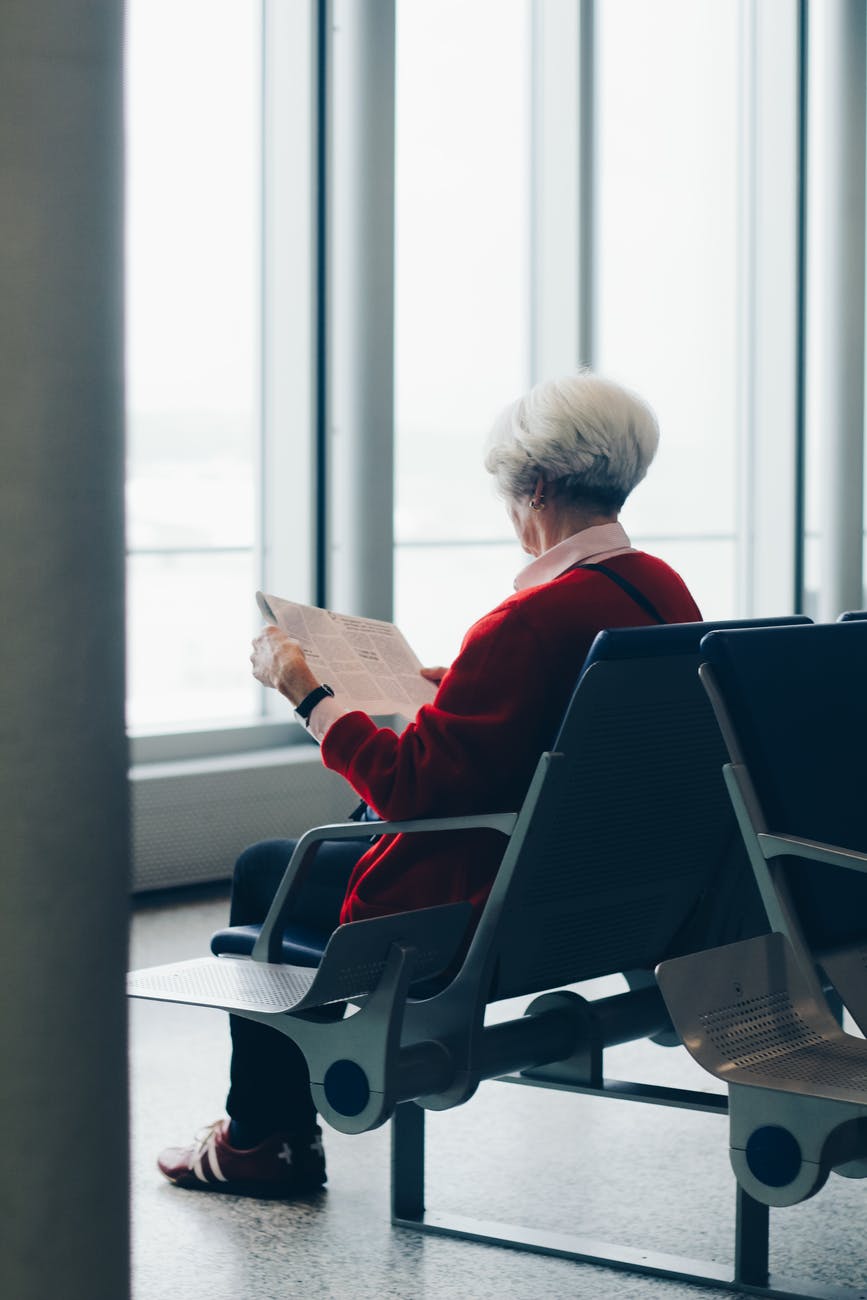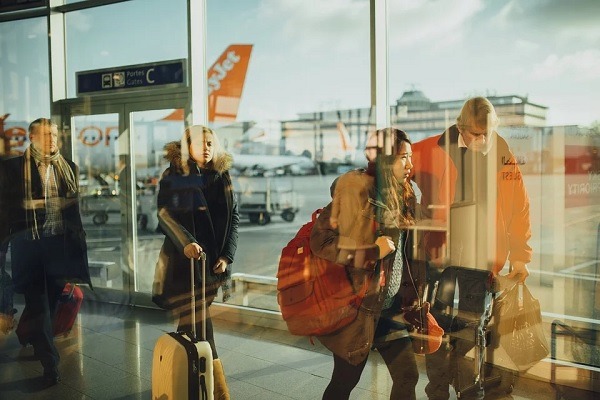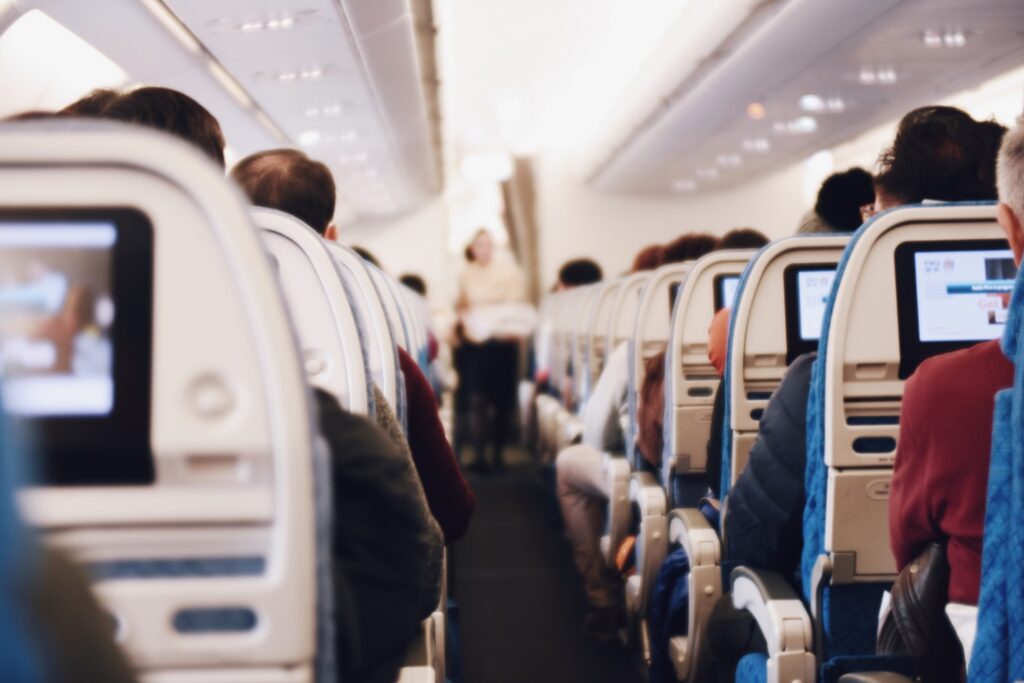Air travel is a convenient and commonplace mode of transport in our modern day and age. It’s affordable, mostly comfortable, and extremely quick. However, as with many other things in life, it can quickly become a chore if you have to frequently partake in it with an elderly loved one. Our older family members and friends require constant care and attention, especially when travelling long distances.
So in this post we’ll be going over some tips for the next time you have to catch a flight with an elderly passenger in tow. Adhering to some of the advice we’re about to give you might help ease some of the tension and pressure on your next flight, and make it a more pleasant experience for both you and the elderly passenger. So let’s get started:
Comfort Them
The success of this tip greatly depends on who you’re travelling with. Some older people have no qualms about air travel and are more than happy to strap themselves in and enjoy the joy ride. Some others however, are much more scared by the whole idea. Comforting them beforehand about the journey ahead can have profound effects on their behavior during the flight. Tell them that nothing will go wrong, that the turbulence is nothing to worry about, and that you will be at their side the whole time. If they’re still wary and uneasy about the whole thing, holding their hand with a comforting pressure during the takeoff and landing can also help. Doing so whenever the plane encounters some turbulence is also a wise choice.
Make Them Comfortable
As with any mode of transport, long-distance travel with an elderly passenger can be made much easier for everyone involved if the passenger in question is made as comfortable as possible. Make them feel at home in the plane. Bring along some extra cushions or pillows to keep them nice and comfortable in their seat. A neck cushion can also be a useful item to bring along with you. A blanket that keeps them snug and cozy in their seat can also be very helpful. If the flight is going to be a long one, consider bringing along an eye mask to help them sleep during most of it. Keep them hydrated as well. Ask them regularly if they require water.
Keep Medication At Hand
Of course, the elderly have a harder time adapting to travel. They are mostly used to resting for the majority of the day, so constant motion as well as the ascent and descent of the plane can make them feel sick very easily. One thing you can do is bring along some bubblegum. Chewing on gum during the whole flight can help with the changes in air pressure inside the ears during the flight and keep the individual slightly busy. Make sure their jaw is up for the job though; it’s not safe to chew gum for everyone. The most sensible course of action is to keep all relevant medication, medical equipment, and medical records at hand. If they fall ill or require a checkup during the flight you should be well-equipped to handle it. Medical records can help you get further help in a hurry. And don’t forget to regularly check in on them and ask how they’re doing.
Discuss The Flight Plan Beforehand
Remember to not keep your elderly companion in the dark about how the flight is actually going to proceed. Let them know all the details. Tell them how long the flight is expected to be, if there are any layovers and if so, where. Basically, let them know the whole procedure beforehand. This way they can mentally prepare themselves for everything and lessen the chances of running into any problems during the flight. Planning everything with them is even better, as both of you will get a say on what to do and how to proceed.
Plan For Security
If the elderly you are accompanying is especially weak or disabled in any way, waiting in a security line at the airport can be tiresome for them. Check in at the correct lines, as some of them will especially be serving the elderly only. In some cases the elderly are given priority status and are checked through first. This might be worth searching for as it can reduce the wait immensely and make sure your elderly passenger doesn’t fall ill before you even board the flight. And be sure to openly declare whatever medication or medical equipment you may be carrying on your person to security to avoid any complications later on down the line.
Bring Along Something To Do
What is the best way to relax yourself in a stressful situation? Distractions. And that is exactly what you should go for when travelling with an elderly person. Most planes will already have some sort of infotainment feature, mostly in the shape of a small screen ahead of you on which you can watch movies and shows, listen to music, or watch your flight’s progress across the globe. However, if the person you are with is not into this kind of stuff it can be a good idea to bring along something they are interested in doing. Maybe a good book? Or maybe even an old book that is familiar to them and brings them comfort. If old grandma likes to knit sweaters for Christmas then letting her knit during the flight can also help her pass the time in a manner that she is comfortable with. And if they’re into tabloids or magazines, just purchase some from the airport before you board the plane.
Keep Earplugs Handy
This is something all people on a flight should be doing, but it is especially important when there is an older person with you. We’ve all been there; a baby keeps crying and the whole plane is disturbed by it. The elderly passenger with you can have one of two reactions to that; either their parental instincts kick in and they want to comfort the child, or they get a headache and start to feel ill. In case it is the latter, you will thank yourself for having planned ahead and packing some earplugs. Those should help the elderly passenger not get too agitated. Come to think of it, you should pack a pair for yourself too.
Let The Airline Know
If the elderly person you will be travelling with requires a lot of attention and care, it might be a good idea to let the airline know beforehand. Emailing them, or even telling the flight attendants of your situation when boarding the plane, can help you immensely. The airline might provide you with better care and even aid for the elderly in the form of a wheelchair or a doctor. This can help alleviate some stress as you would know that you’re not alone in looking after your elderly companion.
Conclusion
And that wraps up our little advice filled list for travelling by air with an elderly passenger in tow. Hopefully this will help you on your next flight. And as always, we have plenty of other articles on elderly care as well. Planning a long road trip after your flight? Here’s our piece on going on a road trip with an elderly passenger. And if you’re looking for some other kind of advice, check out our retirement guide for seniors.









